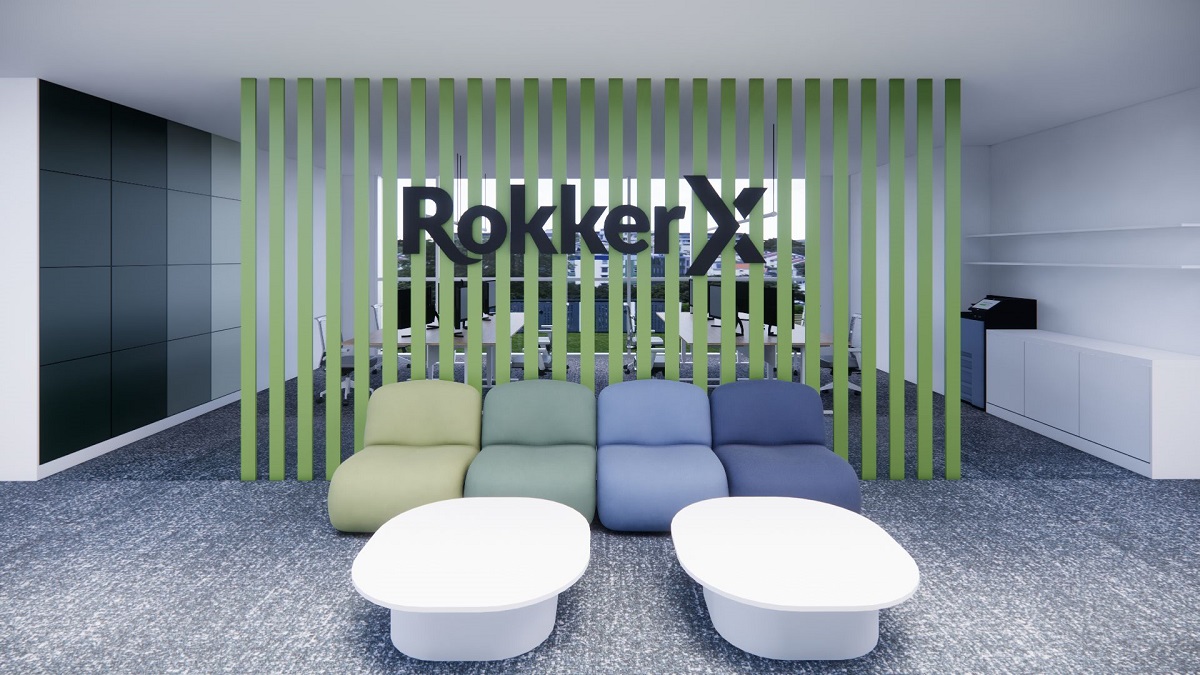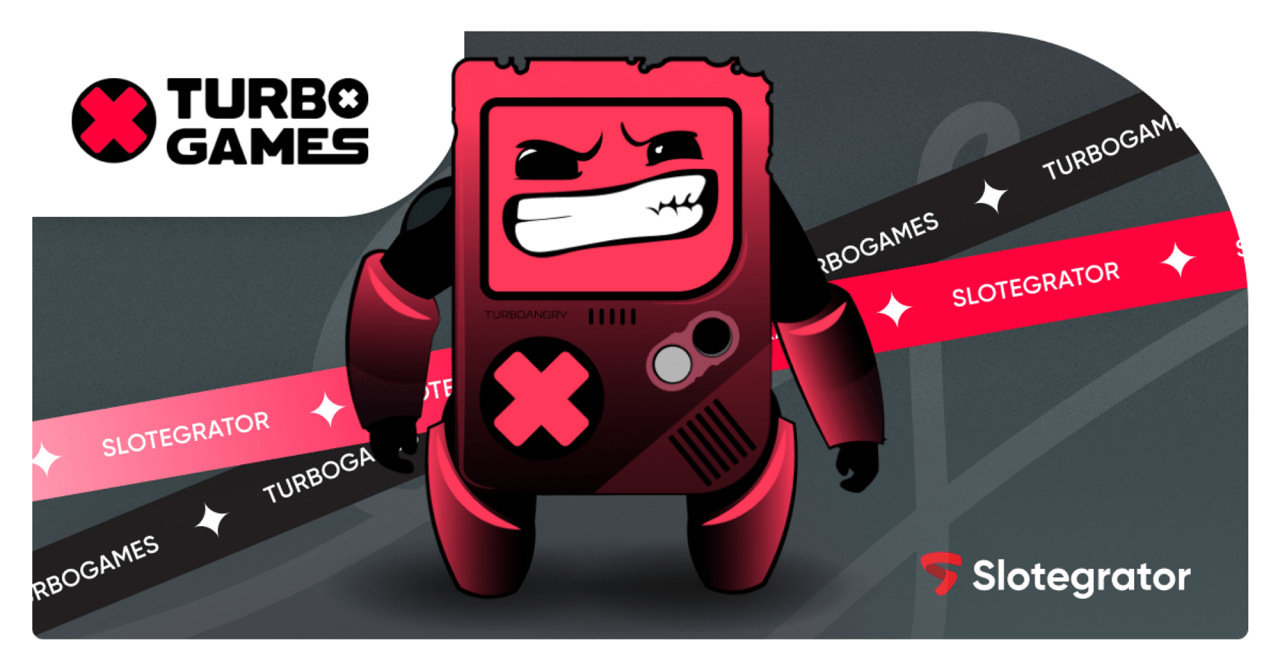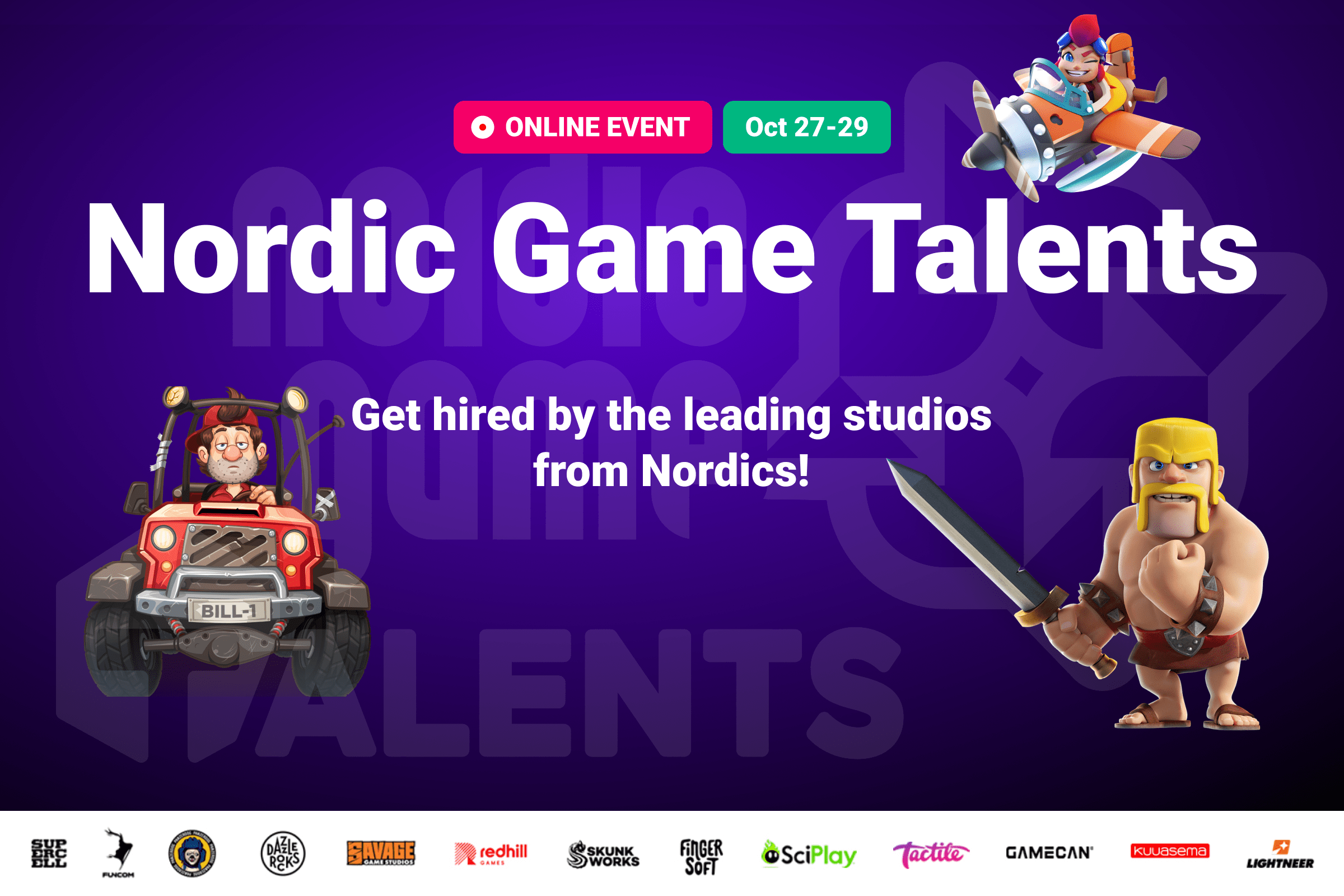News
To 2020 and beyond: the future of AI in igaming
 Reading Time: 4 minutes
Reading Time: 4 minutes
With Digitain’s Director of International Development, Simon Westbury
Our interpretation of artificial intelligence, its progressive role in the world, or its actual relevance to us in any given moment very much depends on our domain of discourse. We’ve all seen the dystopian movies about the rise of the robots. Elon Musk is talking about self-driving cars soon rendering human-driven vehicles illegal, at least on public roads. One AI “teacher” even apparently improved student marks by 35% compared to its human equivalent – wish I had one when I was at school! Meanwhile, back in our own realm of igaming, just take a stroll around any conference floor and you’ll see the majority of stands promising to automate you to the moon and back – and walk your dog while they’re at it. Surely they can’t all be right, at least right now.
So, let’s dispense with fantastical future, and deal in more sober realities. Where are we presently at when it comes to AI? Well, having chaired a panel on the very subject at the recent Eastern European Gaming Summit (EEGS), I’m now in a position to corral and share the thoughts of some top industry experts on artificial intelligence and its current implementations across our industry.
Automated, algorithmic trading is perhaps the most obvious use case for the industry, particularly for in-play betting which has taken over as the main driver for turnover in the UK (up to 70% in some reported cases). However, dig a little deeper or speak to any senior sports trader, and they’re still loading up and Excel spreadsheet, enabling macros on formulas, and overseeing the games themselves.
Quantitative models, running off data channeled from global odds markets, can accurately adjust prices and manage risk as things unfold. However, that’s it for now. By way of analogy, take chess. The algorithms may now wipe the board with the Grandmasters, but the best human-computer teams still consistently win against the robots. Algorithms can process a myriad of moves, but a more detached risk-management system with man-and-the-machine oversight still has its place. As with every intelligent endeavour, though, AI systems will surpass us one day. So, the costs of running sportsbooks are forever diminishing.
For my part, I’m especially interested in CRM as the next big potential differentiator for our operator partners over the coming year, especially in Europe’s more mature market post-GDPR. To which end, I predict that 2020 will be the year of the player journey and player protection. Therefore, it’s now up to operators and suppliers to process the myriad data points available nowadays, whilst also securing the best way to stay fully compliant within the tightening grip of worldwide regulation. Which means that both operators and suppliers must start asking the right questions – even basic questions such as: what do I want AI to achieve? I worry some industry peers sometimes expect the solution without taking the trouble to pose the correct question.
Expect the trend towards the personalisation of marketing to pick up its pace. It’s all about leveraging the data at your disposal, converting it into actionable insights that can boost your bottom line. Only optimal behavioural data insights and personalising your communication will reliably unlock the door to “dwell” time, not to mention gaining ground on the holy grail goal of knowing your customer from the login – their passions, their proclivities, the offers and bonus that drive engagement, a customised user interface promoting the markets they want. Tags which flag behavioural traits (in-play biases, preferred sports, even a customer’s favourite club or player) also offer a personalised and customised experience, configuring all aspects of the customer journey in a responsible, trackable way.
Old-school marketers may baulk at some of our revolutionary code-reliant methods. But at the end of the day, this is simply a question of data processing by a bigger-brained beast. After all, efficient information processing represents the backbone of any intelligent system, and no CRM team can handle these modern-day challenges manually. Basically, AI is a tool to hone and gear up what you can already do manually in order that a more efficient process can ensue. That’s true whether you’re measuring margin, safeguarding your customers from high-frequency deposits, or installing an optimised marketing campaign to better speak to the customer and elevates their experience.
There’s also a danger that regulation is becoming so politicised that new technologies, led by AI, are not being fully adopted in a way that best benefits the customer. That’s because regulators simply don’t understand AI since their respective CVs do not include any tech or gaming know-how. So, we need to promote effective use cases in order to better articulate the AI proposition and its inherent advantages to the relevant authorities.
Ultimately, my view is AI needs to be fully understood in the specific areas where we seek to employ it. We need to focus on the player in terms of entertainment and protection. We need to cooperate with the regulator in terms and language they quickly comprehend. One challenge which the entertainment AI disruptors of Netflix and Amazon have is that they cannot sell cross-platform. In our own industry, from an operator POV, we can. Accordingly, we’ve since seen a lot of stuff around request-a-bet and build-a-bet formats, so we’re getting some sort of worthwhile personalisation. Nevertheless, we can perform far better as we embrace machine-learning techniques. In fact, this represents one of Digitain’s central focuses – understanding the wealth of data we have and using the algorithms to produce a gaming equivalent of the Netflix experience, Betflix so to speak.
I concluded my seminar in Sofia by asking the panel to assign a percentage as to where we currently are when it comes to exploiting AI in gaming. Their answers varied between five and 20%. And while such predictions invariably aren’t worth the paper they’re written on, considering tech’s take-off potential (please pester a professor to explain the doubling power of Moore’s law!), we all agreed that we have barely begun to scratch the surface here.
Whatever the immediate future, it’s an exciting time at present if you’re operating in one of the most progressive and tech-friendly industries around. We’ve now put our powerhouse sportsbook platform in sync with these advances in automated processing. Those operators marooned on legacy technology, however, now have a new raft of agile bookmakers nipping at their heels. At the same time, others who own their own tech are capable of pulling away from the field. If I was stuck on a legacy platform, I’d be very concerned right now.
Author: Simon Westbury
Source: European Gaming Media
This is a Syndicated News piece. Photo credits or photo sources can be found on the source article: To 2020 and beyond: the future of AI in igaming
Latest News
The Untapped Potential of Localised Support January 2024

Objective: Examine how customer experience shapes player retention and brand loyalty in iGaming, placing emphasis on the role of localised, high-quality support.
Outline:
- Introduction: The growing focus on customer experience as a differentiator in iGaming.
- The Value of Localised Support: Exploring how cultural nuances and language fluency enhance player satisfaction.
- Flexibility in Resource Allocation: Meeting fluctuating demand without compromising quality.
- Future Trends: How advancements in technology and localization will shape the next era of player engagement.
Questions for Exploration:
- How does high-quality, localised support impact player satisfaction and retention?
- What role does cultural understanding play in shaping effective customer interactions?
- How can operators balance flexibility with consistency in customer support?
- What emerging trends in customer experience should iGaming businesses prepare for?
Answer:
In the rapidly evolving iGaming industry, players have more choice than ever before—whether it’s brands, slots, game types, payment options, the list goes on. With so much competition, customer experience is quickly becoming a significant differentiator for operators. The ability to deliver a seamless, player-centric experience across multiple jurisdictions is not just a competitive advantage but a necessity in retaining players in this growingly saturated market.
Customer experience today goes far beyond just problem-solving for players. It encompasses proactive, personalised engagement, meaningful recommendations, and a culturally resonant approach. The operators that succeed in this space are those who maintain high standards across these elements, delivering them in a timely and localised manner. Localisation, in particular, is a key factor in turning good customer service into exceptional customer experiences.
So, why is localisation so important? At its core, successful customer support is built on trust. But building trust across diverse jurisdictions is not something that can be achieved through a single, uniform strategy. Methods of communication are a prime example. In Brazil, where the newly regulated market is flourishing, players may expect warm and conversational interactions. In contrast, many European players often favour more concise and formal communication. Recognising and adapting to these cultural nuances allows operators to foster a stronger connection with their entire player base.
Beyond communication style, localisation also plays a critical role in regulatory compliance. The iGaming industry is highly fragmented in terms of regulations, and players are increasingly aware of their rights. A customer service team that understands local legislation implicitly adds immense value, ensuring compliance while delivering tailored support. This not only reinforces trust but also strengthens the player’s respect for the brand.
At the same time, operators face the challenge of balancing high-quality customer support with the flexibility needed to respond to fluctuating demand. This is where RokkerX delivers measurable value. By offering scalable resource allocation and rigorous cross-functional training, we ensure our teams can adapt to surges in demand; whether it’s a major sporting event in a specific jurisdiction or global-scale activity, without compromising on quality. Our teams remain aligned with the core values of our clients’ brands, ensuring a customer-centric approach at all times.
Looking ahead, the iGaming industry is poised for further transformation, driven by advancements in technology and localisation. At RokkerX, we are committed to staying at the forefront of these changes to help our clients deliver exceptional experiences. Trends like the growing prominence of omnichannel communication, including social media and in-app messaging, and advancements in natural language processing (NLP) will enable operators to communicate with even greater precision and cultural nuance. Yet, the future will demand more than just technology. The ability to strike the right balance between tech-driven solutions and the human touch will be essential in creating meaningful connections with players.
As the industry evolves, the blend of cutting-edge technology, cultural understanding, and human expertise will define the next era of player engagement. By staying ahead of these trends, RokkerX ensures our clients are not only prepared for the future but thrive in it.
The post The Untapped Potential of Localised Support January 2024 appeared first on European Gaming Industry News.
Latest News
Innovations Redefining iGaming: What Operators Need to Know

The iGaming industry is advancing at breakneck speed, driven by technological innovation and evolving player expectations. Itai Zak, Executive Director of iGaming at Digicode, emphasizes the importance of bridging client aspirations with customized business solutions. Key trends shaping the future of iGaming include live dealer games, blockchain integration, artificial intelligence (AI) and machine learning (ML), enhanced personalization, and shifting regulatory environments. Let’s delve into how these trends influence the industry, presenting new opportunities while paving the way for future growth.
A Closer Look at Emerging Trends
- Live Dealer Games
Live dealer games are revolutionizing the online gaming experience, blending the best aspects of land-based casinos with the convenience of virtual gaming. Players can now engage with real-life dealers via high-definition video streams, enhancing the social component of online gambling. This bridge between physical and virtual casinos introduces interactive features like live chat and immersive gameplay. Industry leaders like Evolution Gaming and NetEnt are setting new standards in player engagement with innovative game formats and top-tier studio setups, redefining the realism and appeal of live gaming.
- Blockchain and Cryptocurrency Integration
Blockchain technology is transforming iGaming by offering unparalleled transparency and security. With blockchain’s ability to enable provably fair gaming, players can verify that each round is fair via an immutable ledger. Cryptocurrencies like Bitcoin and Ethereum facilitate faster, more secure transactions, catering to tech-savvy players who value privacy. Platforms like Bitcasino.io are leading the way, leveraging blockchain to ensure fairness and seamless payments. However, the rise of blockchain also attracts regulatory attention, requiring operators to balance innovation with compliance as governments navigate this new technology.
- Artificial Intelligence and Machine Learning
AI and ML are instrumental in enhancing player experience and operational efficiency. AI algorithms analyze player behavior in real-time, offering personalized game recommendations and promotions. Additionally, AI-powered chatbots provide instant customer support, improving user satisfaction. AI-driven predictive analytics also help operators fine-tune marketing strategies based on player preferences. Companies like Bet365 are already using these technologies to stay ahead of the competition, offering more personalized and efficient gaming experiences.
- Richer Personalization and Engagement
Personalization has become crucial for iGaming operators looking to boost player satisfaction and retention. By leveraging data analytics, companies can offer tailored game recommendations, dynamic bonuses, and individualized promotional offers. This level of engagement enhances the player experience and strengthens loyalty. Industry pioneers like DraftKings and FanDuel push the envelope by offering highly customized features, such as personalized fantasy sports leagues and bespoke betting options.
- Regulatory Changes and Market Expansion
The constantly evolving regulatory landscape offers both challenges and opportunities for iGaming operators. As more regions legalize various forms of online gambling, companies gain access to new markets. With their large populations and increasing internet penetration, emerging markets like Brazil and Nigeria represent lucrative opportunities. However, navigating the diverse regulations in these markets requires agility and strict compliance with local laws to succeed.
- Enhanced Payment Solutions
With digital transactions becoming the norm, the demand for fast, secure, and flexible payment methods is skyrocketing. From digital wallets to instant banking and cryptocurrencies, players expect payment solutions that offer convenience and security. This growing demand is driving innovation in payment processing, giving operators more opportunities to streamline the transaction process while building trust with users.
Future Implications
The Expanding Role of AI and Blockchain
AI and blockchain are not just current trends, but they are poised to play an even more significant role in iGaming’s future. As AI technology evolves, more sophisticated algorithms will emerge, enabling real-time adaptation to player behavior and preferences. Blockchain’s application may extend beyond transparency and security, transforming game mechanics and player interactions potentially redefining how games are designed and played.
Shifting Player Preferences
Player expectations will continue to evolve toward immersive, interactive experiences. As Virtual Reality (VR) and Augmented Reality (AR) become more mainstream, they will significantly influence the future of iGaming. Players will demand more engaging, lifelike environments, pushing the industry to create innovative game formats and features that offer deeper immersion and entertainment value.
Regulatory Developments
The regulatory environment will continue to evolve, and iGaming operators must stay agile to navigate future changes. New regulations may increasingly emphasize responsible gaming and player protection, influencing platform design and operational practices. A more harmonized regulatory framework across jurisdictions could provide stability while requiring operators to prioritize compliance.
Integrating Emerging Technologies
Technologies like 5G and edge computing are set to revolutionize iGaming by enabling faster, more reliable connectivity. This will allow for more complex game designs and real-time player interactions, opening new avenues for innovative gaming experiences. As these technologies mature, operators will have greater opportunities to differentiate their offerings. The potential of these emerging technologies to revolutionize iGaming is truly exciting and promising for the industry’s future.
Final Thoughts
The iGaming industry is on the cusp of significant transformations, driven by technological advancements and shifting player demands. Innovations like live dealer games, blockchain integration, AI, ML, and enhanced personalization are just the beginning. As the industry evolves, staying ahead of these trends will be critical for operators looking to thrive in an increasingly dynamic environment.
At Digicode, we are constantly exploring new technologies and refining our solutions to meet the evolving needs of our clients. Our focus on adaptability and foresight ensures that our clients are not just keeping pace with the industry—they’re leading it.
The post Innovations Redefining iGaming: What Operators Need to Know appeared first on European Gaming Industry News.
Latest News
What makes Turbo Games’ provably fair games so special?

A partnership between game developer Turbo Games and iGaming solution provider and aggregator Slotegrator began in November 2022 via the APIgrator game integration solution. Since then, the collaboration has been developing successfully — and now it’s time to analyze what made it successful.
Turbo Games has noticed how the new technologies spreading throughout the industry can work for the good of brand transparency and player loyalty: “We can already see how blockchain technology has made it possible to make betting checks more accessible to players. All you need is a blockchain-hash and a decoder service. We think we will continue to move in this direction. Many traditional online casinos do not offer the possibility to check the bet. Sooner or later we all have to come to this. Perhaps the development of artificial intelligence will help here, because we are already seeing its involvement in all spheres of human life.”
Turbo Games specializes in provably fair games. Provable fairness is a concept where players can verify their wins or losses using blockchain technology — the outcome of the game is dictated by a smart contract and is absolutely random, barring the possibility of any human involvement. Using cryptographic hashing algorithms, the gambling site and the player’s device both generate seeds (random strings of numbers). Players receive a key that allows them to check the results; if the results are the same as the game round they witnessed, it proves that there was no foul play.
According to statistics from Turbo Games, the audience for provably fair games is mostly between 18 and 25 years old. However, there are also players aged 35-40 who prefer traditional games but would like to try something new, and have turned their attention to provably fair games.
There are good odds that the technology of provably fair games will become more popular, if not even commonplace, because it gives players a feeling of transparency and proves that the business is trustworthy without the need to search through dozens of reviews. Whereas many innovations in iGaming simply add entertainment, provable fairness addresses security concerns and reassures players that they’re not being exploited, which is invaluable.
Provably fair games are beneficial for both players and online casinos. Vadim Potapenko, Head of Sales at Turbo Games, comments: “It often happens that the users are not satisfied with the result, because gambling is not only about big wins, but also possible losses. By allowing them to check the fairness of a bet, we make life easier for platforms and players. Of course, this allows us to communicate with partners and users that we work honestly and that’s why they should trust our games.”
Ayvar Gabidullin, Business Development Manager at Slotegrator, adds that “this type of game is now becoming more and more popular and has great potential for both players and game providers in the future. On the part of the player, the advantage is that the player can always be sure that his game is fair and he can independently check any of his bets. And for the game provider, this also simplifies the process of implementing casino games, since now it will not be necessary to obtain the appropriate certificates from independent laboratories before launching new games, they can immediately enter the market with these games and where anyone can check the result and make sure that that there is no cheating with players. Many game providers are starting to look towards this type of game. And as far as I see, many operators are starting to think about adding these games.”
What do players in 2023 need? The iGaming industry is all about reputation and trust. Players have a huge number of platforms to choose from, making them pickier and pickier. There’s an abundance of forums where players leave reviews, so if players view a brand as untrustworthy, there are plenty of places they can share their opinion. Provable fairness not only stops that from happening, it provides evidence to the contrary, giving players something else to talk about.
Slotegrator also recommends investing time and effort into localization and creating an effective and detailed marketing strategy — before trying provably fair technology players need to get to the platform, and there is no acquisition without marketing.
ABOUT SLOTEGRATOR
Since 2012, Slotegrator has been one of the iGaming industry’s leading software and business solution providers for online casino and sportsbook operators.
The company’s main focus is software development and support for online casino platforms, as well as the integration of game content and payment systems.
The company works with licensed game developers and offers a vast portfolio of casino content: slots, live casino games, poker, virtual sports, table games, lotteries, casual games, and data feeds for betting.
Slotegrator also provides consulting services in gambling license acquisition and business incorporation.
More information: https://slotegrator.pro/
ABOUT TURBO GAMES
Turbo Games — a provably fair games provider that belongs to Turbo Stars company — has an ambitious goal to establish widespread recognition throughout the iGaming world. Even though it is young, the company consists of professionals who have been working on the brand for over five years and are even planning to introduce a new brand for a wider audience soon.
Turbo Games also works in Europe, India, and South Africa, where the company sees the most potential and expects the same “hype” as in Brazil.
The portfolio of Turbo Games consists of 21 titles, including well-known games like Mines, Crash X, DoubleRoll, Hi-Lo, and Plinko. The studio releases a game every month. However, not all games are developed from scratch. Wicket Blast and Spin Strike, the last two releases, are based on cricket and the Indian Premier League. Crash X remains the most popular fast game in the Turbo Games portfolio, and the studio reports that crash games enjoy stable levels of popularity. Overall, the main focus of the brand is provably fair games.
More information: https://turbogames.io/
-

 gaming3 years ago
gaming3 years agoODIN by 4Players: Immersive, state-of-the-art in-game audio launches into the next generation of gaming
-
EEG iGaming Directory9 years ago
iSoftBet continues to grow with new release Forest Mania
-
News8 years ago
Softbroke collaborates with Asia Live Tech for the expansion of the service line in the igaming market
-
News7 years ago
Super Bowl LIII: NFL Fans Can Bet on the #1 Sportsbook Review Site Betting-Super-Bowl.com, Providing Free Unbiased and Trusted News, Picks and Predictions
-
iGaming Industry8 years ago
Rick Meitzler appointed to the Indian Gaming Magazine Advisory Board for 2018
-
News7 years ago
REVEALED: Top eSports players set to earn $3.2 million in 2019
-
iGaming Industry8 years ago
French Senator raises Loot Boxes to France’s Gambling Regulator
-
News7 years ago
Exclusive Interview with Miklos Handa (Founder of the email marketing solutions, “MailMike.net”), speaker at Vienna International Gaming Expo 2018















